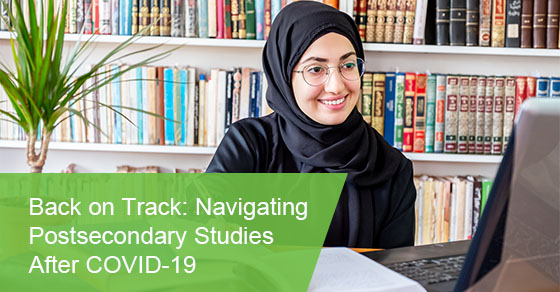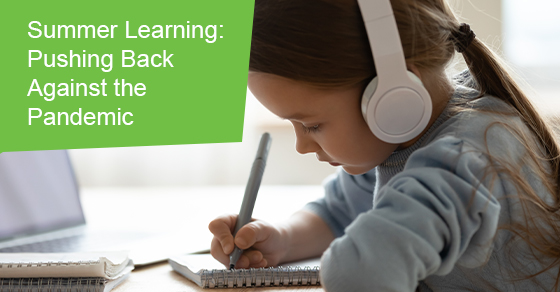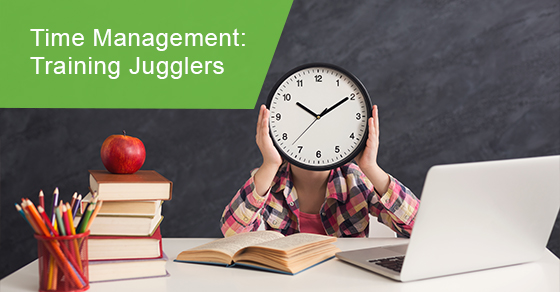According to the results of a recent Statistics Canada crowdsourcing questionnaire, one quarter of postsecondary school students had some of their courses postponed or cancelled last year because of the COVID-19 pandemic. Responses indicated that 92% of students had some or all of their courses moved online, and many were unable to complete their courses or credentials as planned. Chief among their concerns were the impact that the pandemic was having on their grades and concerns about their finances.
At Evoke Learning, we offer several programs to support students who are transitioning into higher education or having a hard time thriving in the postsecondary environment. In a normal year, these services can mean the difference between barely getting by and getting the most out of your university or college experience. This year, they can provide a lifeline to students who are working hard to get their planning, learning, and budgets back on track.
ADHD Coaching
Our ADHD coaching process involves an initial appraisal of student goals and the skills needed to achieve them. What will success look like for the individual client? Central to the coaching effort is regular contact to set weekly academic goals, identify roadblocks or challenges to achieving those objectives, and create a plan of action aligned with those goals. We look to three sources to craft solutions: executive functioning, learning strategies, and the student at their personal best. Ultimately, ADHD coaching increases self-awareness that allows students to dig deeper to discover what is getting in the way for them, and provides the support and focus required to persevere at studies, complete a degree, and effectively manage transitions. Students are introduced to information, resources, strategies, and tools that help them navigate a postsecondary curriculum and enhance their learning, organizational, and study skills.
Students are engaged in conversation about:
- Identifying and setting personal and academic goals,
- Evaluating their options and making choices,
- Better understanding their disability and learning profile,
- Research-informed strategies and the creation of an individualized learning plan to enhance their academic performance,
- How to develop strategies that best fit with their learning needs and goals,
- The need to enhance self-determination skills (self-awareness, self-advocacy, and self-management) to meet the increased academic demands of a postsecondary environment and the additional required effort and time commitment,
- Enhancing their engagement and willingness to seek support,
- Making use of resources supports and accommodations at the postsecondary level,
- The development of time management, executive function, and study skills,
- Recognizing obstacles and habit cycles.
Academic Strategy and Executive Function Support
Our strategists work one-to-one, with students to help them achieve their academic and personal goals and acquire new skills and approaches to their learning. This program helps students manage their time, establish effective work habits, develop helpful learning skills and strategies, and strengthen and manage their executive function abilities. The program supports students who find it difficult to stay organized, plan, initiate work, and remain on task. Strategists work directly with students to address challenges as they arise and teach how to initiate and break down assignments into manageable chunks. Students are introduced to the science of learning, the basics of human cognitive processes, and strategies for effective learning. This information is especially helpful for students with executive function challenges and introduces them to key foundational concepts necessary for academic performance.
Academic Writing Strategies
Evidence-based research shows that struggling writers can improve their skills dramatically if they receive the detailed, explicit instruction they need (Graham & Harris, 2015). Such strategies can improve the writing skills of students with learning disabilities, ADS, and ADHD, and are equally effective for individuals who need extra help. Our Academic Writing Strategies program teaches students research-validated strategies that assist with every phase of the writing process. Together, the student and strategist will identify the greatest roadblocks to the student’s writing and choose the strategies that will best address their challenges.
Financial Literacy for Students
It’s so easy for young adults to fall into financial traps, and poor decisions about money can take decades to fix. Learning to manage their personal finances now means that students will be prepared when the time comes to set financial goals, follow best practices, and prevent and protect themselves against fraud and financial abuse. Understanding the fundamentals of budgeting, saving, debt, and investing is critical in every part of life and students require the knowledge and skills for making sound financial decisions, engaging in good saving habits, budgeting, and building a solid credit score. This program is especially helpful to individuals who are transitioning to or currently attending postsecondary education and/or students with ADHD who may find managing finances particularly difficult because of challenges with procrastination, disorganization, and impulsivity.
Could one of these programs help you or someone in your family succeed in the post-pandemic world of postsecondary education? We invite you to contact us for a complimentary conversation about your needs and discuss some of the services that could make the difference between surviving and thriving, in this year and beyond.
Sources
“COVID-19 Pandemic: Academic Impacts on Postsecondary Students in Canada.” Statistics Canada, Canada.ca, 14 May 2020,
www150.statcan.gc.ca/n1/pub/45-28-0001/2020001/article/00015-eng.htm.
Graham, Steve, and Karen R. Harris. Writing Better: Effective Strategies for Teaching Students with Learning Difficulties. 1st ed., P.H. Brookes Pub. Co., 2015.


